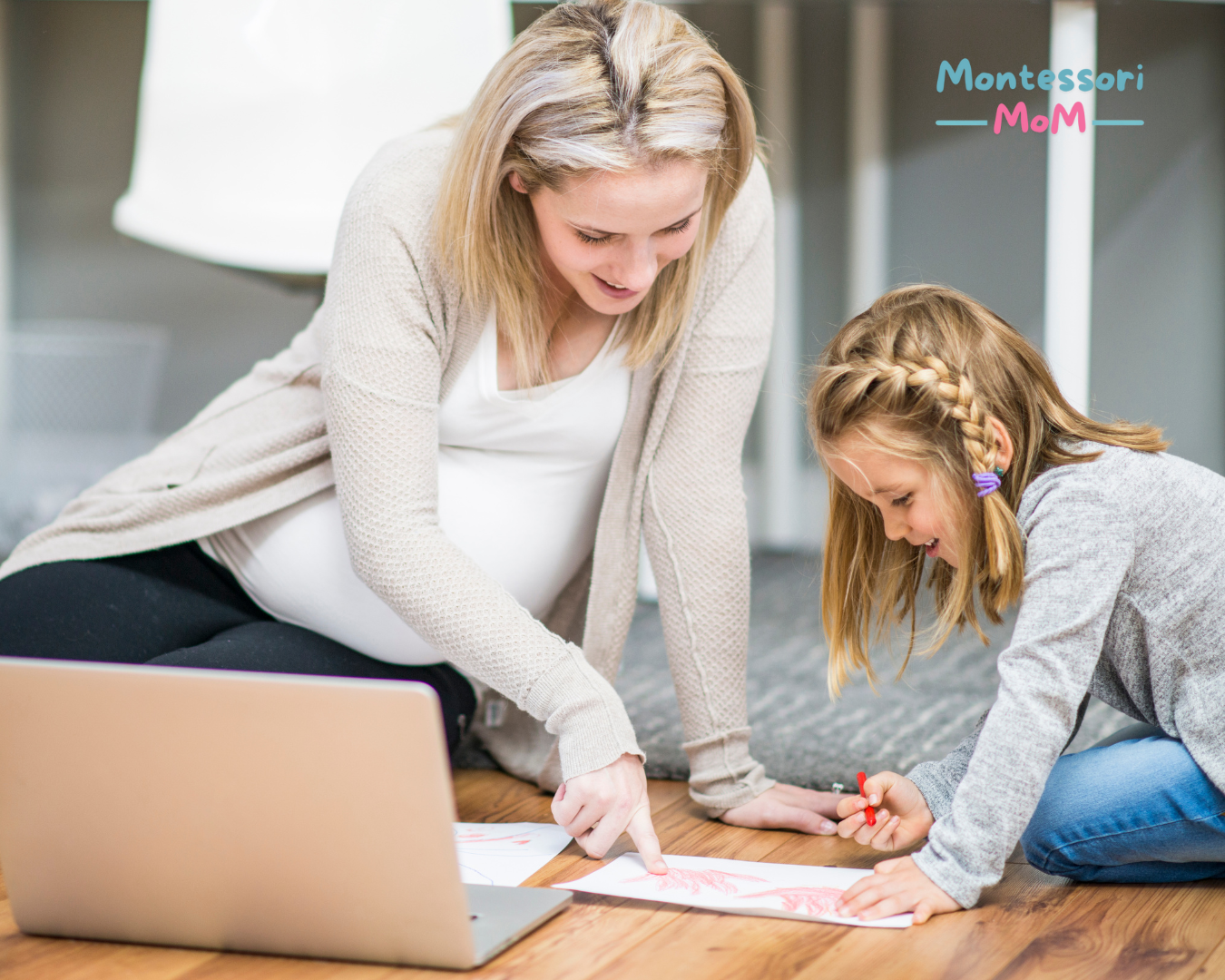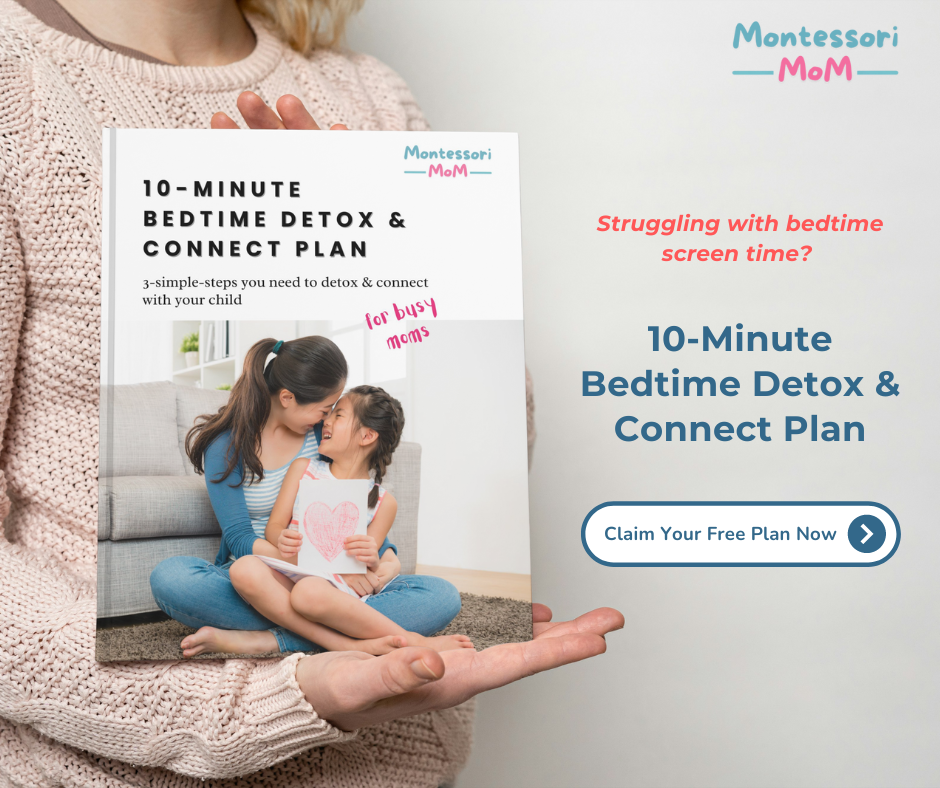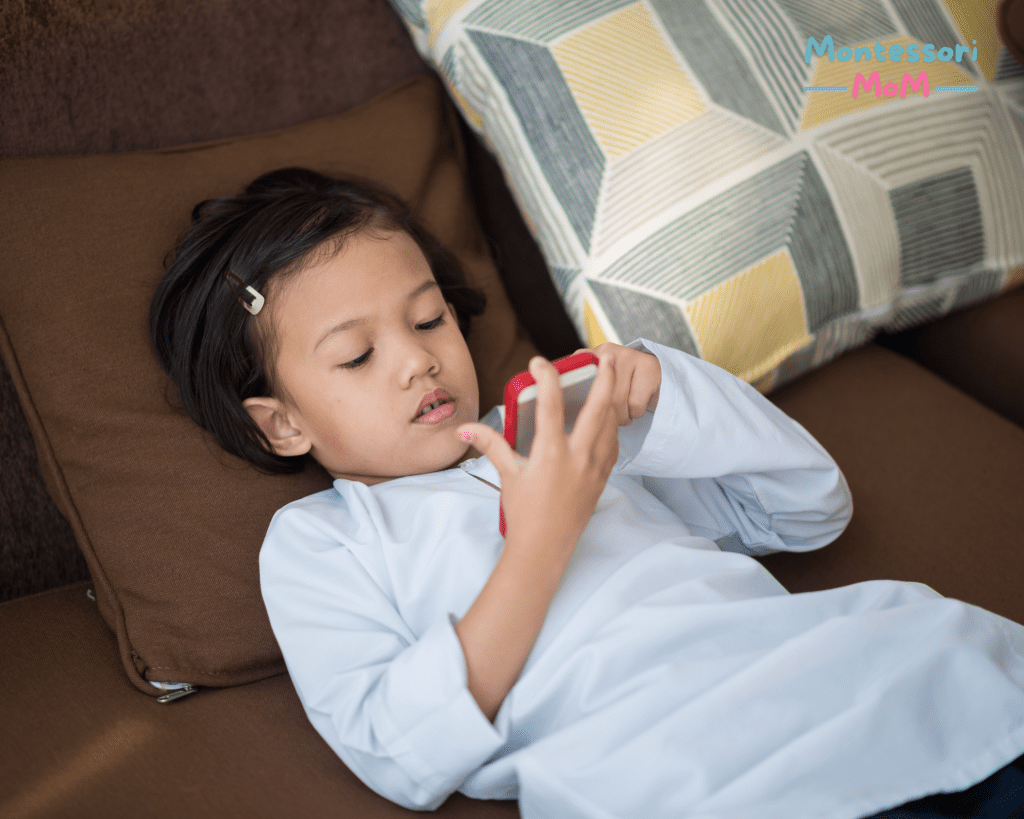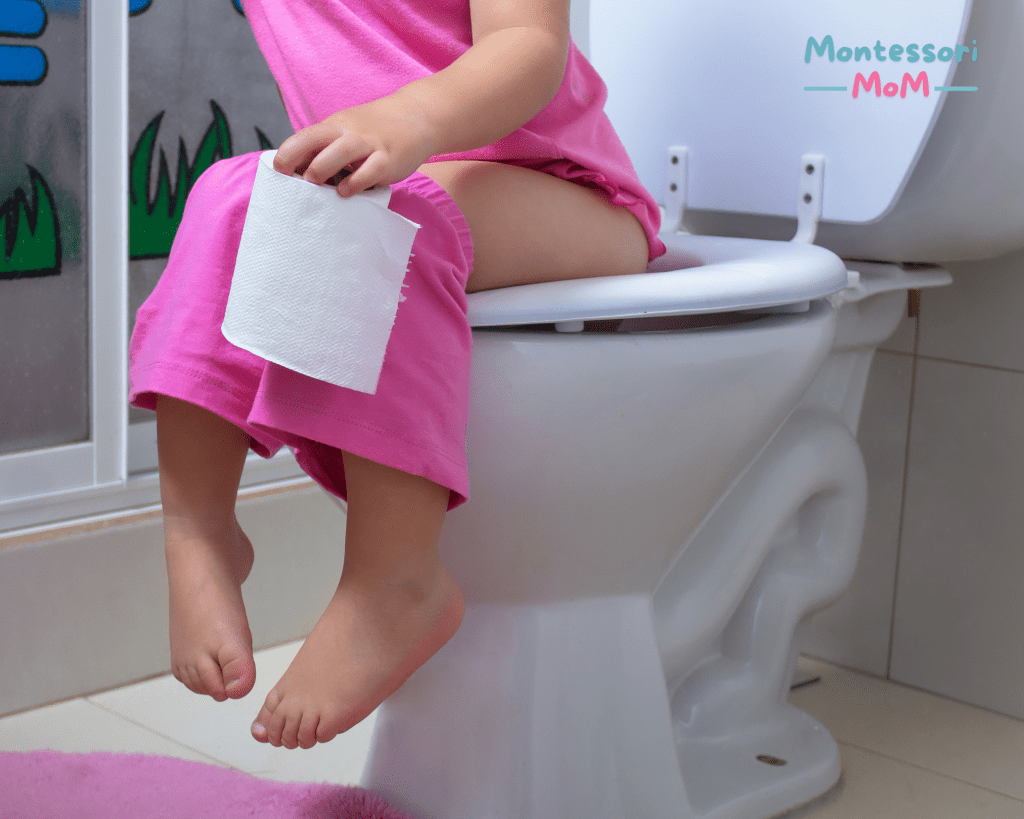Screens Can Help Busy Parents
—But Here’s How To Protect Your Child’s Health

Acknowledging the Reality of Modern Parenting
Parenting today can feel like a never-ending juggling act. Between work, household chores, and the constant demands of daily life, screens can often seem like a lifesaver. Whether it’s handing your child a tablet so you can make dinner in peace or letting them watch a show while you finish up some work, screens offer a quick and easy solution that many parents rely on. And that’s okay.
We’re not here to tell you that screens are bad or that you should feel guilty for using them. At Montessori Mom, we understand how challenging modern parenting can be. Instead of focusing on cutting out screens completely, we want to help you find a balance that turns screen time into opportunities for learning, connection, and growth.
The Role of Screens in Modern Parenting
Let’s be real: screens are everywhere. Studies show that the average child spends over two hours a
day on screens, with older kids spending even more time. For parents, screens can be a crucial tool for managing the chaos of everyday life. They give you a moment of calm in a busy day, allowing you to get things done while your child is entertained.
But with this convenience often comes a bit of guilt. Are you relying too much on screens? Is it affecting your child’s development? These concerns are common and completely valid. However, it’s important to remember that screens are just tools—it’s how we use them that matters.
The Montessori Approach to Screen Time: Mindful, Observant, Motivated (MOM)
At Montessori Mom, we advocate for a balanced approach to screen time. Rather than viewing screens as the enemy, we encourage parents to be MOM: Mindful, Observant, and Motivated when it comes to their children’s screen use.
- Mindful: Be aware of how and when screens are used in your home. Set intentional limits and ensure that screen time doesn’t interfere with other important activities like play, social interaction, and sleep.
- Observant: Pay close attention to how your child reacts to screen time. Do they stay calm and focused, or do they become irritable and overstimulated? Understanding your child’s needs and responses is key to finding the right balance.
- Motivated: Use screen time as a springboard for other activities. For example, if your child enjoys a particular educational app, you can expand on that interest with hands-on activities that reinforce what they’re learning.
Small, Manageable Steps to Reduce Screen Time
We understand that the idea of drastically reducing screen time can feel overwhelming for many parents. That’s why we recommend starting with small, manageable steps. Here are a few ideas to help you introduce more screen-free moments into your family’s routine:
- Set Specific Screen Time Limits: Instead of letting screen time stretch throughout the day, designate specific times when screens are allowed. For example, screens might be permitted during breakfast while you prepare for the day, but then switch to screen-free activities after school.
- Create a Screen-Free Bedtime Routine: Bedtime is an ideal time to introduce a screen-free routine. Not only does it help your child wind down for the night, but it also improves sleep quality. Our Montessori Bedtime Routine offers a structured, screen-free hour before bed that can turn your evenings into a peaceful, connected time.
- Incorporate Educational and Engaging Alternatives: Replace some screen time with engaging, educational activities. Montessori-style activities, like using 3-part cards or hands-on learning, provide exciting alternatives that your child may enjoy just as much as their favorite show.
The Benefits of Screen-Free Time: For Your Child and You
So why should you make these small changes? Because the benefits of screen-free time are significant for both your child and you. Research shows that reducing screen time, especially before bed, can lead to better sleep, improved behavior, and stronger family bonds. Engaging in screen-free activities also encourages creativity, problem-solving, and critical thinking—skills that are essential for your child’s development.
For parents, these moments of connection can transform stressful evenings into cherished family time. Imagine replacing the nightly struggle over screens with laughter, stories, and meaningful conversations. Not only does this reduce stress, but it also strengthens the bond between you and your child.
Moving Forward: A Balanced Approach
At Montessori Mom, our goal is to help families find a balance that works for them. It’s not about completely eliminating screens, but about using them mindfully and intentionally. By taking small steps to reduce screen time and incorporating more Montessori-style activities, you can create a healthier, more connected family environment.
So the next time you hand your child a tablet, remember—it’s okay. You’re doing your best, and with a few mindful changes, you can make screen time part of a balanced, enriching routine for your whole family.
Ready to take the first step? Download our free guide:
Bedtime Detox & Connect Plan for Busy Moms.
This plan provides you with a simple step-by-step guide to creating your own effective bedtime routine designed to transform bedtime chaos into calm. By following these steps, you can reduce screen time tantrums, improve your child’s behavior, and strengthen your parent-child bond.
Inside, you’ll find a clear, step-by-step instructions with engaging activities and practical tips to help you create a peaceful, screen-free evening. Let’s get started and make bedtime a time of tranquility and connection.





